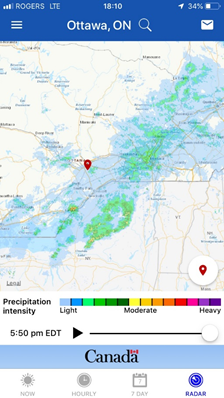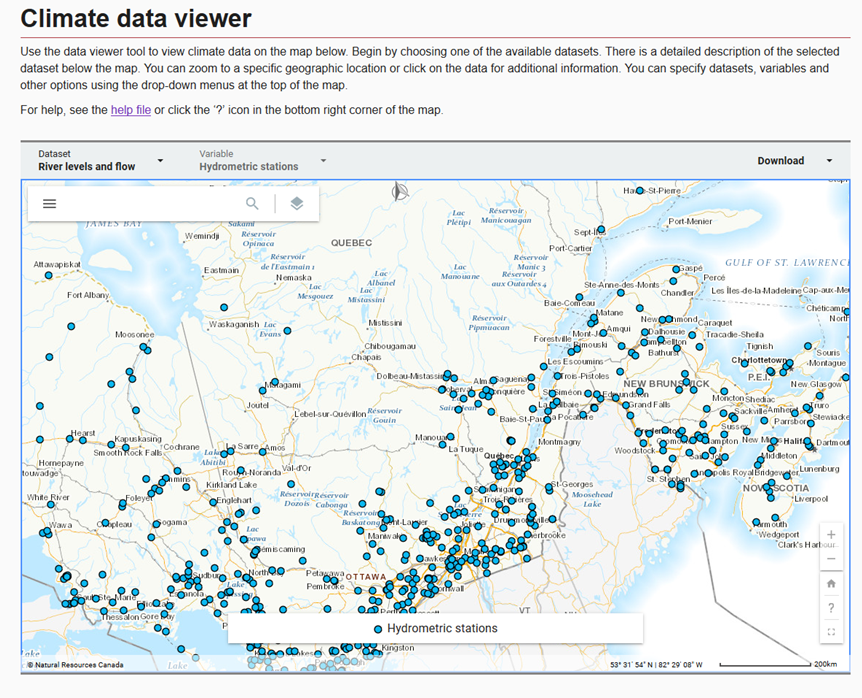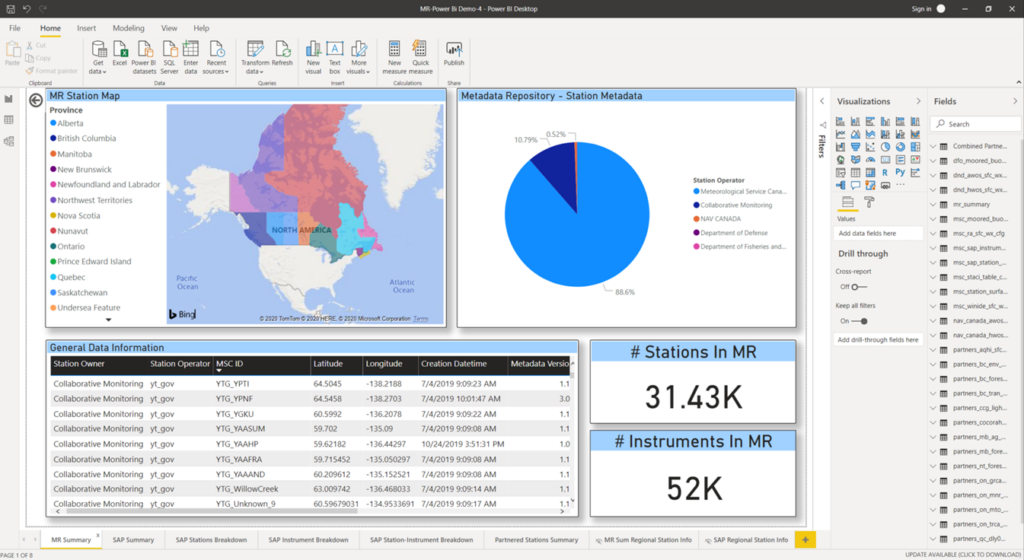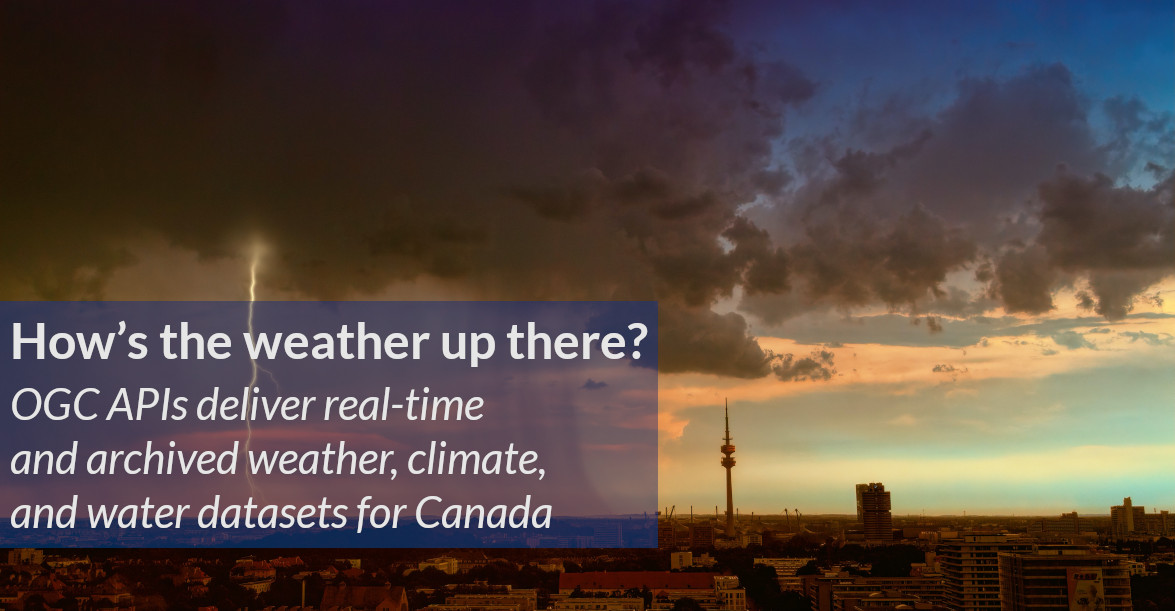A long-time user and supporter of OGC standards, the Meteorological Service of Canada (MSC), a division of Environment and Climate Change Canada (ECCC), is Canada’s authoritative source for severe-weather alerts and weather, water, ice, and climate data.
One of the nation’s oldest government institutions, MSC is also one to keep up with the times, using the latest technologies in its quest to help “Canadians make informed decisions about their health and safety and […] economic prosperity.” One such example is the MSC GeoMet API platform, which uses OGC API and other OGC standards to provide public access to MSC and ECCC data.
The MSC GeoMet API Platform, through the use of open standards, allows users to freely and quickly access thousands of real-time and archived weather, climate, and water datasets and products and integrate them in their domain-specific applications and decision support systems.
“Lowering the barrier to access is a key goal for MSC data dissemination,” said Tom Kralidis, Senior Systems Scientist at MSC and co-chair of the OGC API – Records Standard Working Group (SWG). “MSC has been a long time provider of weather/climate/water data using OGC first generation Web Service standards such as WMS and WCS, and is now implementing the emerging OGC API standards in support of modernizing its MSC GeoMet API platform.”

“The OGC API move to a resource-oriented architecture, modern technologies, and Web architecture has opened the door to a wider ecosystem of tools for communities to build, serve, and consume OGC APIs using current approaches,” continued Tom. “This has resulted in increased efficiency in the development, testing, provisioning, and integration of our services. This not only benefits our long time users, but also lowers the barrier to new information communities.”
MSC is an enthusiastic early adopter of the new OGC APIs, implementing OGC API – Features and OGC API – Processes in its GeoMet API Platform, with plans to implement OGC API – Records, – Coverages, – Maps, – Tiles, and – Environmental Data Retrieval once they are approved and released.
“OGC API – Features is used [on the MSC GeoMet API Platform] to provide access to archive climate and water data, as well as the recent implementation of real-time hydrometric data and surface weather observations,” said Tom. “Additionally, OGC API – Processes is used to enable users to extract time series from climate simulations and historical products.
“The OGC API standards were chosen due to their ease of implementation and use. Implementing OGC APIs has made it easier for MSC to integrate with our line of business data flows, infrastructure, as well as allowing for rapid application development of our Canadian Centre for Climate Services climate viewer and data extraction tool.”

This enthusiasm for open standards is also encapsulated by MSC and ECCC taking an active role in the OGC Standards development process.
“We co-chair the OGC API – Records SWG and participate in the OGC API – Environmental Data Retrieval and OGC API – Coverages SWGs to lead and contribute to the development of these standards with the goal of lowering the barrier to weather, climate, and water data for Canadians and the world,” said Tom.
“We have also contributed to various open source software implementations, which have helped with testing and advancing the standards. For example, pygeoapi is an OGC API Reference Implementation and already implements six of the OGC APIs.”
MSC’s use of OGC APIs isn’t just about their ease of implementation, easy interoperability with other business systems, or the new applications that they’ve allowed. It’s also about setting an example for others to follow.
“As an early adopter of OGC API standards, we also hope to help influence adoption of these standards as part of our involvement in international weather/climate/water activities with the World Meteorological Organization,” said Tom. “Over a decade ago, the WMO and OGC signed a Memorandum of Understanding, which was a key strategic step that resulted in increased collaboration and streamlined standards development, widening the reach of WMO data exchange. The OGC API efforts are a great example of these efforts in action as exemplified in the OGC API – Environmental Data Retrieval Standard as well as helping shape the architecture of the next generation WMO Information System (WIS 2.0).”
To learn more about OGC APIs visit ogcapi.org. To contribute to and help shape the development and evolution of OGC APIs, consider becoming an OGC Member today.

